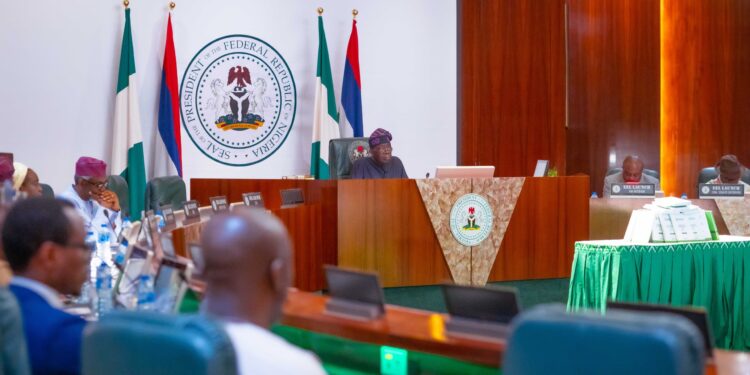FG has partnered over 100 countries to track remote workers and enforce tax compliance.
NewsOnline Nigeria reports that the Chairman of the Presidential Committee on Fiscal Policy and Tax Reforms, Taiwo Oyedele, has announced that Nigeria has entered into agreements with over 100 countries to obtain data on remote workers and Nigerians with assets abroad, as part of efforts to strengthen tax enforcement and improve compliance.
Speaking during a webinar hosted by the National Orientation Agency (NOA) on Wednesday, themed “Simplifying Nigeria’s Tax System,” Oyedele said the move is designed to address taxation challenges in the digital economy, particularly among remote workers and online income earners.
ALSO: Veteran Yoruba Actor Baba Gebu Is Dead
According to him, every Nigerian, whether employed by a local or foreign company is required to declare their income independently.
“The requirement under this new law is that everybody, whether you earn your money from Google or from a company in the Bahamas, must declare your income yourself. If you fail to do it, the system will gather intelligence when the money hits your bank account,” he explained.
Nigeria Partners Over 100 Countries for Data Exchange
Oyedele revealed that the Nigerian government has already begun receiving data from over 100 countries under the Common Reporting Standards (CRS) framework to identify Nigerians with foreign bank accounts and properties abroad.
“We see this money coming to your dollar account. Nigeria has signed an agreement with over 100 countries… They’re already sending us data about Nigerians with money and property abroad — from Dubai to the US, Canada, and the UK,” he said.
He urged citizens to comply with tax obligations voluntarily, warning that the government will act against defaulters once discrepancies are detected.
“If you fail to do the right thing, the government will come back and say, ‘We know this about you; you haven’t been honest,’ and then issue a presumptive assessment,” Oyedele cautioned.
Engagement with Big Tech Companies
Oyedele also disclosed that Nigeria began discussions with global tech companies about three to four years ago to ensure Value Added Tax (VAT) compliance on digital transactions.
“If brick-and-mortar stores charge VAT, online sellers should do the same,” he noted, adding that the government adopted a collaborative approach that has since led to successful agreements with major digital firms.
“Today, I can tell you Nigeria is making billions of dollars from those digital taxes — without fighting,” he added.
Legislative Errors and Correction Efforts
Addressing inconsistencies in the newly enacted Nigerian Tax Administration Act, Oyedele confirmed that conflicting turnover thresholds — ₦50 million and ₦100 million — resulted from a gazetting error.
“The 50 that was there originally got into one of the laws during editing and typesetting,” he explained, adding that the correct threshold is ₦100 million, which will reflect in the next set of amendments.
Capital Gains Tax (CGT) Clarification
Oyedele further clarified that the new Capital Gains Tax framework, taking effect from January 1, 2026, will not apply retroactively.
The reform includes a cost basis reset and grandfathering clause, ensuring that only profits made after 2026 will be taxed under the new system.
“Old gains will not be taxed. The law only applies to new profits made after the reform comes into effect,” he confirmed.














